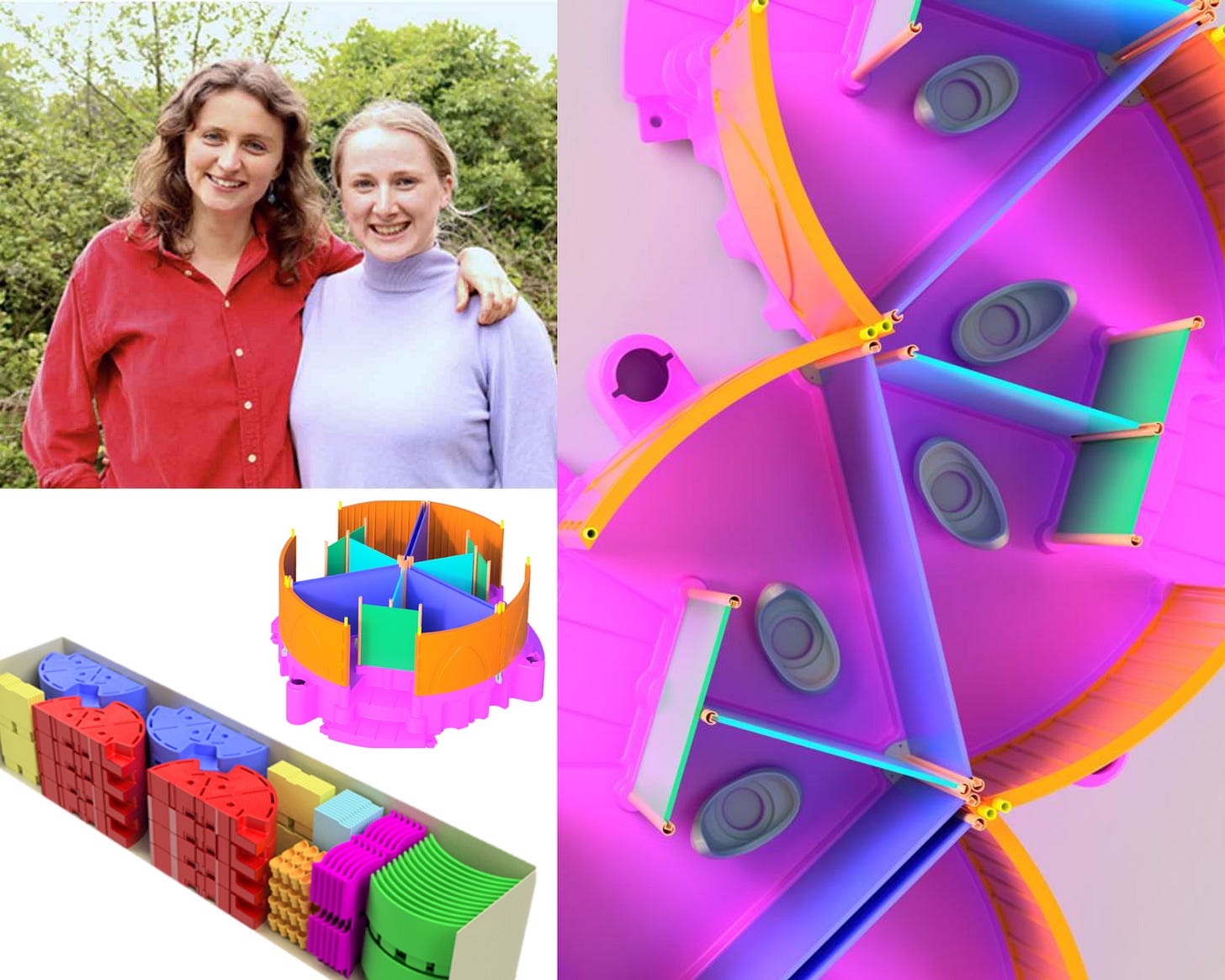Eating, Bathing and Peeing
3 startups show how sustainability can be incorporated into daily life activities
Consumers don’t want to choose between sustainability and convenience.
84% of UK consumers say that being environmentally friendly is important to them, yet 68% cannot name a single environmentally friendly brand.
Research also says that only people who are passionate about sustainability are willing to pay more for products or services from companies that are more environmentally friendly.
And only up to 15% more at that, according to Getty Images.
So brands have the challenge to inculcate sustainability into their products, without compromising the price and convenience.
Let’s see how these 3 brands are doing it⬇️
I don’t want to spoil ice cream for you…but the typical ice cream containers that might seem like cardboard boxes are actually coated with plastic. To prevent the ice cream from seeping into the packaging and to ensure that the box holds up in the freezer, the boxes are coated with a layer of polyethylene plastic. This mix of plastic and cardboard makes it neither biodegradable nor recyclable and it’s impossible to break it down into new materials. Had it been completely made of plastic, it might have had a shot at being recycled (less than 10% of the plastic is recycled).
No ice cream container has ever been recycled…With the U.S. alone producing as much as 6.4 billion pounds of ice cream each year, the problem of these non-recyclable cartons is just piling up. Chicago-based vegan gelato startup, Sacred Serve, is solving this problem for its all-natural ice cream. Kailey Donewald started the plant-powered line of ice creams in 2017 to bring a healthier alternative to the ice cream segment. In their latest sustainability move, they have partnered with London-based Delipac to deliver sustainable packaging options-
The containers are fully biodegradable in water or soil and can be composted at home or industrially.
It uses a water-based moisture barrier that is 100% plastic-free.
The containers are robust enough at both high oven and deep-freeze temperatures.

Organic and fair trade ingredients…All their products are vegan. Vegan alternatives have a lower environmental impact as compared to dairy products as they require a fraction of the land and water usage and don’t have emissions caused by livestock farming. The products are sweetened using coconut sugar and the brand uses a proprietary cold-crafting process to preserve the essential vitamins and minerals in the ingredients.
Wasteful and inefficient…Pick up any personal care product around you. Check the ingredients. Did you find aqua/water on the top? Your bottle of shower gel or shampoo is 95% water. For the last few decades, CPG companies have mostly been selling us water in plastic bottles- increasing the plastic pollution and CO2 in the air.
Reimagining personal care…Plus is solving the problem of single-use plastic and the environmental cost of transporting water together. The company’s mission is to help consumers leave zero waste in their shower routine. The brand sells shower sheets, made with an aloe leaf and shea butter formula, that turns into shower gel once water is applied.
The sheets emit 80% less CO2 in shipping compared to traditional body wash.
38% less water is used in their manufacturing.
All their ingredients are vegan and cruelty-free.

Now that’s convenient…The sheets come in a tearable, completely dissolvable sachet. After removing the sheet, you can simply drop the sachet in the shower and it dissolves and disappears. The dissolvable sachet is made of wood pulp sourced from responsibly managed forests. The ink used for labelling is no-tox, bio-renewable, FDA approved and dissolves without a trace. You would receive your Plus shipment in a home compostable mailer that breaks down into water, carbon dioxide, and organic matter.
Sounds familiar?… Billions of people cannot access toilets in their own homes. I will come back to this in one of the upcoming newsletters. The developed world though struggles with the problem of finding a public toilet, especially for women. In the UK, women spend 34 times longer queueing for public loos than men do. This causes serious health and safety issues for women.
Not just another 100-page report…Amber Probyn and Hazel McShane were asked to solve a real-life problem for their masters project and they immediately knew what they wanted to work on. They spoke to more than 2,000 women in focus groups and pubs around Bristol, UK and came up with Peequal, a new, open-air, doorless toilet, designed primarily for women. A 100% environmentally-conscious option, it’s a women’s urinal that reduces the queue time
The touch-free(no doors or flushes) women’s urinal is six times quicker to use than conventional portable lockable toilets.
It is made from 100% recycled material and produces 98% less CO2 than portable toilets.
Peequal is more open than traditional toilets(it's semi-private, you can't see anything from the waist down) and as it’s well-lit, it’s far safer than closed, locked toilets.

Coming up…To make the solution more sustainable, the founders plan to work with PeePower– an enterprise that uses microbial fuel cells to turn urine into electricity. As Peequal has a separate waste stream, the waste can be easily collected and diverted. I hope the solution can be extended to communities that don’t have adequate sanitation facilities.
🔍Ready for some crossword challenge?
You can solve it here
If someone you know is still on the fence about climate change, these tweets might help
If you liked this edition, please do share it. That would mean a lot😊
📢 Shoutout to Paridhi who helped me write this edition.
Hit that 💚 if you liked today’s edition.
Are you following us on Instagram?
Thanks and see you next week😄













